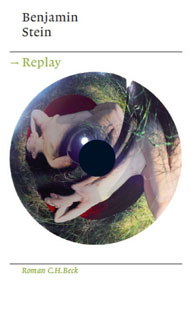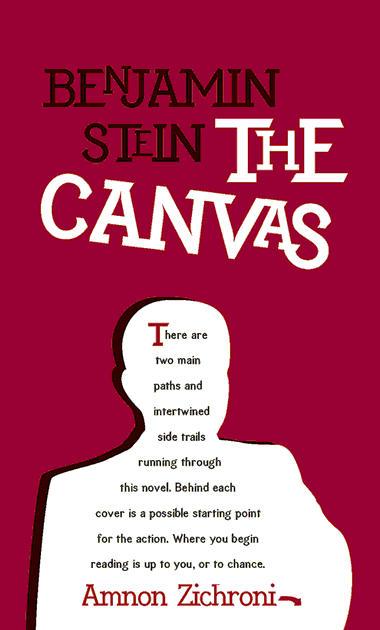A response to D. G. Myers‘ „Remembering Truman Capote“ (»» Deutsche Version lesen)
••• Now that D. G. Myers’s „Remembering Truman Capote“ has been posted here in German, I can finally begin to respond. How much one likes Capote may vary—one may not even like him at all—but what Myers does posthumously to the eccentric Truman demands explicit contradiction.
At least four claims in Myers’s post rub me the wrong way. He begins with the claim that Capote’s novels before „In Cold Blood“ are mere collages of what Capote had read. Apparently, this is made sufficiently clear (otherwise it would not have been worth mentioning) by the fact that Capote’s debut, „Other Voices, Other Rooms,“ was published when the author was just 24. Well, whoever thinks a twenty-four-year old can have nothing to say except what he has read surely did not have a complex childhood shaped by unstable relationships and abandonment; beyond that, though, whether the author has experienced and suffered every detail of what he relates has never been a valid literary-critical criterion.
Immediately after that point, Myers claims that Capote’s prose is so clearly mannered that it is hardly worth mentioning. I would really like to know the basis of this assertion. To me, „Breakfast at Tiffany’s“—as I am already on the record as saying here—is a flawless novel. It may not shed light on whatever the world revolves around, but in terms of technique, the book seems to me to be beyond criticism. Capote himself may have been mannered—but his prose is not. This is not just my opinion. None other than Norman Mailer, after all (who definitely had at least one or two hard-to-swallow experiences with Capote), admitted that
Truman Capote is the most perfect writer of my generation. … I would not have changed two words in „Breakfast at Tiffany’s“
Such a blanket condemnation as Myers’s must be justified in detail. I cannot accept how it has just been tossed off so acidly.
Further, Myers seems to have completely misunderstood the intention of „In Cold Blood“. He deplores how little attention Capote paid to the victims. But there was a reason for that: they are not the object of Capote’s interest. One may regret that as a reader, but it is not the author’s fault when his narrative interest does not fit every single reader’s expectations. Yes, Capote sympathizes with the murderers, above all with one of them—I consider that one of the book’s strengths. I also see its deficiency: as Robert Merle did in „Death Is My Trade,“ he could have told the story from the perspective of the character, and that might have made the book even stronger. But Capote does succeed in portraying the killer as a human being. And, no matter how gruesome the crime, no matter how little remorse he shows for his act, he is still a human being. And because he is, the execution—like every execution—is still a cold-blooded murder. The fact that it is performed by the state in a „ceremonial“ procedure changes nothing. One of the merits of this novel is precisely that it uses a case that hardly calls for any pity to address the problem of the death penalty and how the penal systems of at least some states in the United States are organized around revenge. Myers clearly expects the perpetrators to be dehumanized, as is also common practice in war, in order to gloss over the fact of murder. This expectation makes clear how important it was (and still is) for literature to present such criminals as human beings and their executions as almost insoluble ethical conflicts.
And finally, what of Myers’s conclusion, with its heavy moral judgment? Capote dared to detach the concept of evil from a black-and-white scheme. What a crime! Not only is it literature’s legitimate right to tell stories opposed to everyday ideas of morality—at times, it is also its duty to unsettle those ideas. Here, unlike in „Breakfast at Tiffany’s,“ Capote takes up a truly great subject: evil not simply as the other that can be eradicated but as an integral part of the human. Whoever does not want to recognize that should read fairy tales and avoid great novels.
(translated by Andrew Shields)






Am 4. September 2009 um 23:50 Uhr
Reply is here.
Am 10. September 2009 um 12:04 Uhr
In seinem heutigen Beitrag »Less than God, excelling other creatures« geht Myers nochmals auf diese Diskussion ein.
Am 12. Mai 2010 um 18:47 Uhr
It is one thing to oppose the death penalty; there are good reasons to be suspicious giving the government — any government — the power to execute its citizens. However, to compare, however obliquely, the savagery of a whole family being slaughtered by these two diaper stains with the execution of two murderers is not to engage in moral reasoning, but rather to throw it out the window in favor of bumper-sticker posturing.
I do agree with you about „Breakfast at Tiffany’s“ though. A superior work of fiction, that.
Am 14. Mai 2010 um 15:31 Uhr
It seems you are missing the point I try to make. In my opinion humans should never take other human’s lives – maybe besides in direct defense in order not to be killed. It is not comparing murderers to their victims. It is just safeguarding the undebateable value of human life. Make sure the murderer cannot kill again. But don’t take revenge (just listen to the word death penalty) by taking the life of the delinquent.
Whenever we start valueing one human life more than the other and accept that killing a human beeing might be allowed based on this »value« we are close to epic crimes – like the third reich’s »euthanasia«, »ethnic cleansing« etc. pp.
It might be more complicated. I often wonder why the Torah dictates the death penalty for a number of crimes but on the other hand makes it close to impossible (e.g. by requiring two eye witnesses and their explicit warning before the criminal act) to actually convict to it.